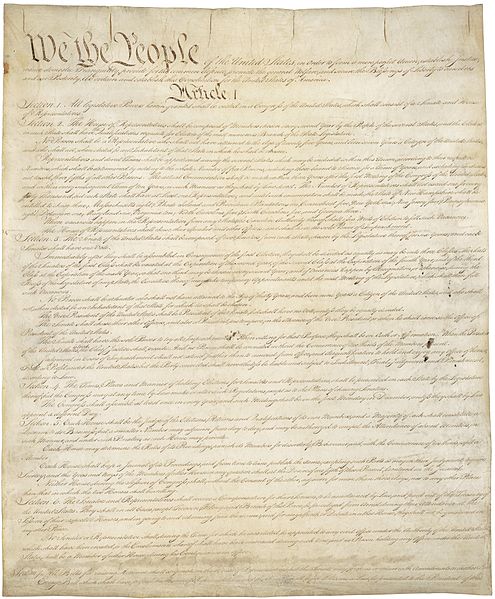Political Minutes: The Constitution, the Court, and America’s Promise
 September 17, 2012 was the 225th anniversary of the signing of the United States Constitution. A week later Columbia University held its annual Constitution Day celebration, commemorating the anniversary with talks given by Joanne Freeman, Professor of History at Yale University, and by the Honorable Joseph A. Greenaway Jr. of the United States Court of Appeals for the Third Circuit. Professor Freeman lectured on Alexander Hamilton, while Judge Greenaway spoke about the relationship between the Constitution and the Declaration of Independence.
September 17, 2012 was the 225th anniversary of the signing of the United States Constitution. A week later Columbia University held its annual Constitution Day celebration, commemorating the anniversary with talks given by Joanne Freeman, Professor of History at Yale University, and by the Honorable Joseph A. Greenaway Jr. of the United States Court of Appeals for the Third Circuit. Professor Freeman lectured on Alexander Hamilton, while Judge Greenaway spoke about the relationship between the Constitution and the Declaration of Independence.
Professor Freeman began by setting the tone of the era through the eyes of Alexander Hamilton, noting that, "He was a brilliant, sometimes arrogant, often impatient, and always impulsive politician." Freeman argued that Hamilton's experiences at Washington's headquarters and his lack of close emotional bonds with any one state allowed him to focus on turning the country into one nation and not a group of states. After the signing of the Constitution none were sure the document would be ratified into law. Hamilton, writing to himself, worried that the federal government would eventually subordinate states or that clusters of states would form monarchies.
Judge Greenaway began his talk with the most famous lines of the Declaration of Independence, "We hold these truths to be self-evident, that all men are created equal.” Greenaway gave an informative examination of slavery and segregation from the Declaration through the Brown vs. Board of Education (1954) decision. He said, "Brown is undoubtedly a watershed moment in Supreme Court jurisprudence, but it is not the attainment of equality alluded to in the Declaration."
He concluded his speech with the reminder that these court decisions are not where the issues end, but the beginning of fixing them. He made clear to the audience his point that while progress has been made, we have not reached the state described in the Declaration, but instead we must see equality as a goal to achieve because “it is beyond dispute that there is more work to be done."
